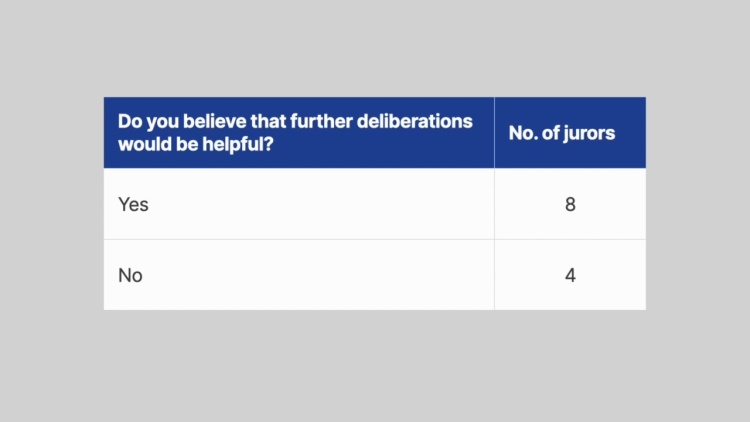Lowenfield v. Phelps
United States Supreme Court
484 U.S. 231, 108 S.Ct. 546, 98 L.Ed.2d 568 (1988)

- Written by Richard Lavigne, JD
Facts
Louisiana law provided for a court-imposed sentence of life imprisonment in the event that a jury failed to come to unanimous agreement upon a sentence of death. When the jury demonstrated difficulty in achieving a unanimous penalty recommendation, the judge asked each juror to provide a written answer to the question of whether further deliberations would be helpful in reaching a verdict. Four out of 12 jurors indicated that further deliberations would not be helpful. Lowenfield moved for a mistrial on the ground of a hung jury and the trial court denied his motion. After more deliberations, the judge polled the jurors again about the benefit of further deliberations. Only one juror indicated that further deliberations would be of no benefit. The judge read a supplemental instruction charging the jurors to reexamine their own views about sentencing but admonishing the jurors not to change their views exclusively for the purpose of reaching a unanimous agreement. After another 30 minutes of deliberation, the jury reached a unanimous verdict sentencing Lowenfield to death on each of three counts. Lowenfield’s conviction was upheld in the state courts. Lowenfield petitioned the federal district court for a writ of habeas corpus. The district court denied the writ and the court of appeals affirmed the district court’s decisions. Lowenfield petitioned the United States Supreme Court for review.
Rule of Law
Issue
Holding and Reasoning (Rehnquist, J.)
Dissent (Marshall, J.)
What to do next…
Here's why 907,000 law students have relied on our case briefs:
- Written by law professors and practitioners, not other law students. 47,100 briefs, keyed to 996 casebooks. Top-notch customer support.
- The right amount of information, includes the facts, issues, rule of law, holding and reasoning, and any concurrences and dissents.
- Access in your classes, works on your mobile and tablet. Massive library of related video lessons and high quality multiple-choice questions.
- Easy to use, uniform format for every case brief. Written in plain English, not in legalese. Our briefs summarize and simplify; they don’t just repeat the court’s language.





